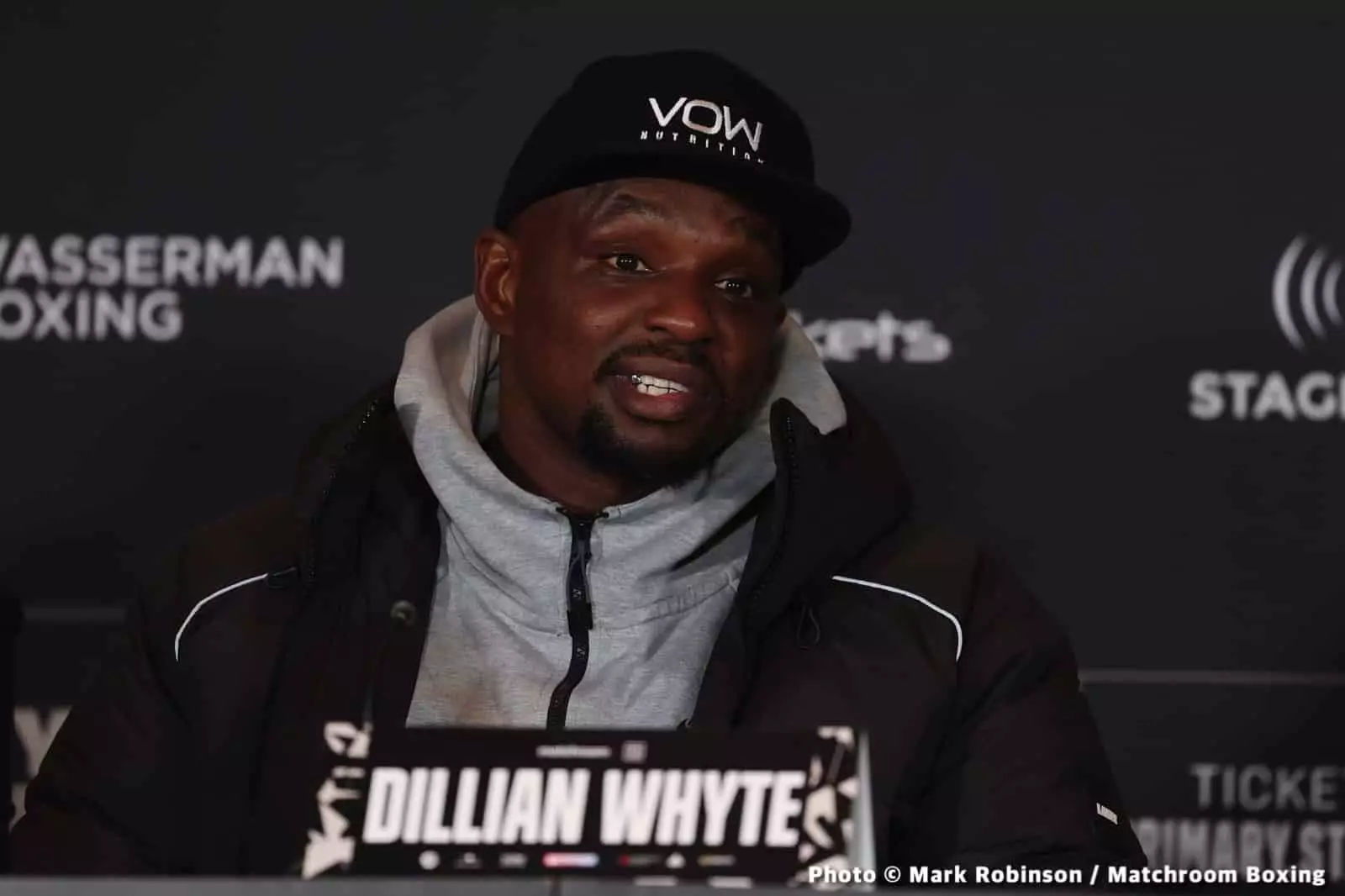In the world of heavyweight boxing, where the stakes are high and competition is fierce, the aftermath of a defeat can cast a long shadow over a fighter’s career. Dillian Whyte, a prominent figure in this landscape, has recently spoken out about the misconceptions surrounding losses in boxing. As he prepares for his upcoming bout against Ebenezer Tetteh in Gibraltar, scheduled for December 15, Whyte urges fans and pundits alike to reassess their approach towards boxers who face setbacks in their careers. According to Whyte, the narrative shouldn’t focus solely on losses, but rather on the exciting matchups that these fighters are generating, which has become increasingly prevalent in the heavyweight division.
Critique of the Immediate Retirement Debate
Whyte has expressed that the call for Anthony Joshua to retire following his knockout loss to Daniel Dubois is both premature and poorly placed. Rather than placing an excessive burden on fighters to maintain an undefeated record, Whyte argues that the boxing community should embrace the competitive nature of the sport. Recognizing that losses are part of a fighter’s journey can change the narrative from one of demise to one of growth and resilience. He highlights Joshua’s abilities, stating that the former champion has much to offer the sport, asserting that Joshua remains a formidable presence inside the ring.
At a mere 33 years old, Joshua possesses both the physical conditioning and the raw talent necessary to continue competing at a high level. Whyte cites Joshua’s performance against Dubois, noting that he had his opponent in a precarious situation prior to the fight’s conclusion. For Whyte, the key takeaway is the encouraging display of power and skill that Joshua demonstrated. This perspective, which contrasts sharply with a dismissive attitude towards lost fights, invites a more nuanced view of the sport.
The Heavyweight Landscape and Future Excitement
The current heavyweight boxing scene is undeniably vibrant and filled with promise, as matched talents like Agit Kabayel and Frank Sanchez continue to emerge. Whyte argues that instead of fixating on statistics of wins and losses, fans should appreciate the high-stakes bouts taking place regularly. These matchups reflect a far more dynamic environment compared to the stagnation seen in previous years when top fighters were unwilling to face one another for fear of tarnishing their records.
Moreover, there are speculations that Whyte’s advocacy for Joshua’s continued fighting career might not be entirely altruistic. Whyte himself has aspirations of reclaiming his place at the top of the heavyweight division and may envision a lucrative rematch with Joshua in the near future. The prospect of a second bout is tantalizing, particularly if both fighters can secure wins in the interim. With Joshua slated to return to the ring next summer, as stated by his promoter, Eddie Hearn, a rematch could be on the horizon, adding another layer of anticipation to the heavyweight scene.
As boxing continues to evolve, the perspectives surrounding its athletes must also adapt. Dillian Whyte’s insights serve as a critical reminder that the journey of a fighter is not solely defined by victories or defeats. Instead, it is defined by the spirit of competition, resilience, and the collective excitement ignited by thrilling bouts. Both Joshua and Whyte should be viewed not just through their losses but through the lens of their potential to continue making impactful contributions to the sport. In this way, the heavyweight division remains a captivating arena where the best continue to challenge each other, fostering a culture of respect and inspiration among fighters and fans alike.

